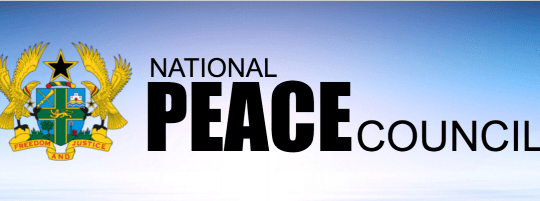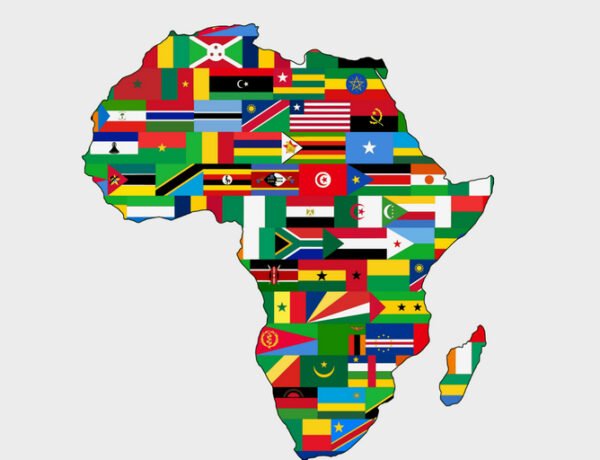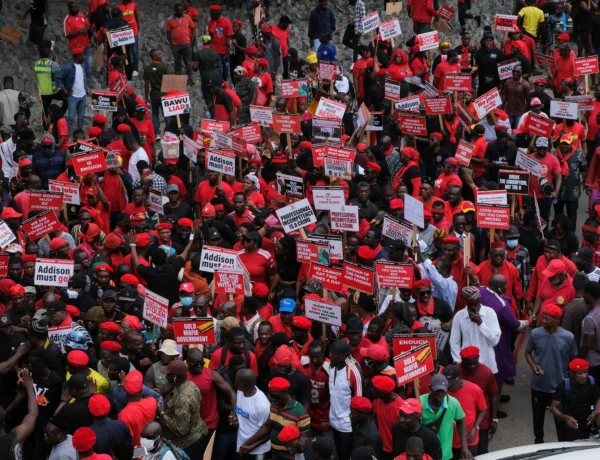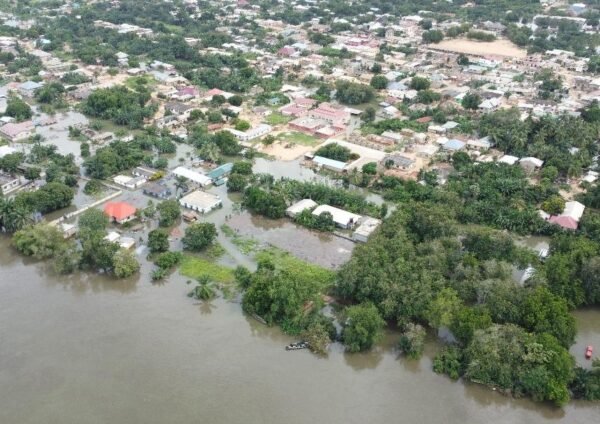Introduction:
Peace and the pursuit of peace is at the heart of every human society without which no economic, social, political and cultural activities, including ethical values will be sustained. In Ghana for example, the relevance of peace is seen through the cordial relationship which exists among the diverse tribes, religions, cultures and political parties among others. Ghana is one country in the sub-region of Africa which attracts external commendations by international organizations such as the United Nations (UN), World Bank, (WB), International Monetary Fund (MF) and International Labour Organization (ILO), just to state few examples, as peaceful and receptive to foreigners; thus, designated in some circles as lovely, kind and hospitable nation. The peaceful nature of Ghana is also evidenced in the promotion of inter-marriages between and among tribes- what an envious attribute of a nation like mother Ghana. However, this blogpost is organised against the backdrop of series of hostile and vitriolic comments peddled by the dominant opposition party – National Democratic Congress (NDC), Movement for Change- a splinter group from the reigning New Patriotic Party (NPP), and a cross- section of civil society organisation against the ill-governance of the NPP government, with a particular focus on the manner in which the National Electoral Council (NEC) appears to be conducting its operations in the light of the forthcoming December 7th election in Ghana. Among the criticisms levelled against the National Peace Council (NPC) is that it has outlived its usefulness and should be disbanded. In that respect, the question this blogpost endeavours to answer is whether indeed the NPC has lost its legitimacy and relevance?
Peace Council: what is it?
The National Peace Council (NPC) is an Independent statutory national institution established by the eight hundred and eighteenth (818) Act, which became operational in 2011; thereby abolishing and replacing its predecessor Peace strategy of National, Regional and District Security Council. It has regional and district components under the Umbrella and current chairmanship of Rev. Dr. Ernest Adu. Among its key functions/activities are: promoting, improving and enhancing peace and public order. Also, it seeks to promote awareness on the use of non-violent measures to prevent and manage conflicts with a view promoting and protecting democratic institutions to ensure socio-economic and political developments of all Ghanaians without discrimination on the basis of religion, colour, sex or political affiliation. Perhaps, it is on this premise that a delegation from the NPC visited the headquarters of the NDC to persuade them to sign a Peace Pact to ensure that there is peace and harmony during the forthcoming election scheduled for 7th December 2024. An attempt to fulfil one strand of its mandate. However, gaining credibility, confidence and respect of the Ghanaian public as an institution requires hard work, which in the opinion of this blogpost is non-extent in the NPC for the following reasons: First, the NPC appears lousy with respect to discharging its role in preserving peace; because, although, it has no enforcement powers of its own, it failed flagrantly to speak, advise or hold press conferences to comment on many ills characterising the NPP government. Prominent among them are the killings of eight Ghanaians during the 2020 general elections at Techiman south and other related killings. For nearly four years, no morpheme was heard from the NPC on these and other several subjects; thus, surfacing suddenly to approach an opposition party without state authority to sign a Peace Pact betrays them as white elephant organisation. The sad and shocking aspect of this is that some of the executive members of the NPC are senior clergy members of reputable religious institutions in Ghana. One distinguishing attribute of the clergy in orthodox religious institutions in western societies, including Britian, is their swiftness to resign from public institutions of which they are board members when wrongs are perpetrated. One caveat here is that this blogpost is not intended to portray the west as wrong-free or perfect since there is no perfection in human society; but to advocate the simplest and easy thing to do by the clergy in the face of bad government policies.
Over the thirty-two years of Ghana’s 4th Republic, no electoral commissioner has been provided with a single police officer, or given full military protection at home and office premise. Yet, the current NPP government has done that in the case of the current EC chairperson, While treating this subject with allusion to the EC may colour this blogpost as partisan, which is contrary to the reality, the fact remains that arming the chairperson of the EC with armour-cars and military personnel, which is unprecedented in the Ghanaian political history creates plausible suspicion and severely undermines the democratic credentials of Ghana at home and abroad. That further erodes confidence among the citizenry; and the NPC’s failure to condemn same characterise them as men and women lacking morality. The above was a little digression, however, crucial in addressing the issues at stake, With that the question still remains whether the NPC is worth its existence or not.
Is the National Peace Council a Drain on Ghana’s Coffers?
Without prejudice, bias or hatred, it is the opinion of this blogpost that the National Peace Council has outlived its usefulness for several reasons, some of which are below. First, given the fact that they have no enforcement powers to compel reigning governments, the legislature or the Judiciary to perform their functions; but to offer mere advice on certain limited matters, it is submitted that they are disbanded so that committees are appointed from parliament to deliberate and offer recommendations on national issues when needed. At least, parliament has some powers to provide and hold governments accountable as recently transpired in the sale of national hotels in Ghana. Second, for mere advisory role without enforcement powers is akin to white elephant, and what is the essence of having a body which cannot impose or enforce its recommendations in country where youth employment has swelled; yet some elders are designated as NPC with allowances without impacting the fortunes of the youth – the future generation. Like many other civil society organisations(CSOs) which had lost their moral voices, what is the relevance of a non-performing entity to any state/country? Given its challenging circumstances coupled with the dire finances characterising the Ghanaian economy, it is prudent to disband the NPC to save the state some funds to initiate youth employment projects/schemes.
Final Remarks
In the Gospel of St. Matthew 5:13, it reads: “You are the salt of the earth. But if the salt loses its salty taste, it cannot be made salty again. It is good for nothing, except to be thrown out and walked on.” So, to the National Peace Council, you have lost your saltiness on many issues in many respects to promote the cause of Ghana. Thus, it is in the interest of the state that it is disbanded entirely.




